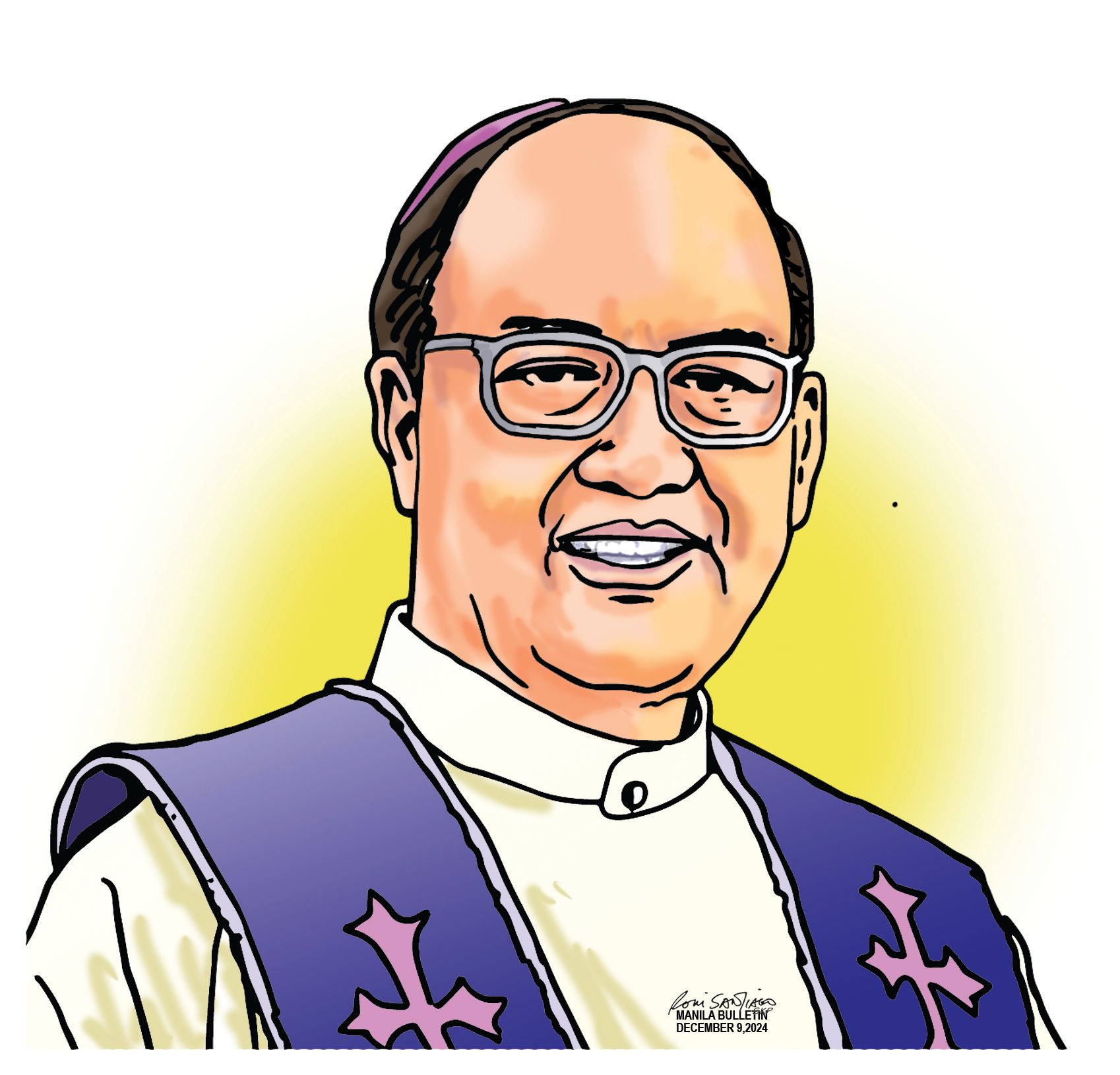
On the eve of the feast of the Immaculate Conception of the Blessed Virgin Mary, the principal patroness of the Philippines, Pope Francis conferred the red hat on Pablo Virgilio Siongco David, the 10th Filipino cardinal.
Like the late Cardinal Rufino Santos, the first to be conferred the title in 1960, erstwhile Bishop Ambo, as he is fondly called by his flock, hails from Guagua, Pampanga. He joins the incumbent Filipino prelates in the College of Cardinals: Jose Advincula, Luis Antonio Tagle, Gaudencio Rosales, and Orlando Quevedo. Four other Filipino cardinals are deceased: Julio Cardinal Rosales, who was Archbishop of Cebu; Jaime Cardinal Sin, who served as Manila Archbishop; Ricardo Vidal, who was Cebu Archbishop and Jose Sanchez, who served as Prefect of the Congregation of the Clergy.
The new prince of the Church, who is also the president of the Catholic Bishops Conference of the Philippines (CBCP) is recognized for being “a champion of human rights and care for the poor.” He established community-based drug rehabilitation programs as a counterpoint to a punitive campaign against alleged drug users.
A review of two of his published homilies provides insights into his principles as a leader of the church. On Sept. 30, he preached on Iglesia Sin Fronteras, or Church Without Borders:
“I imagine Jesus explaining to his disciples that the same stone that can serve as a ‘building block’ can also serve as a ‘stumbling block’, depending on how they looked at it. What is most revolutionary about Christianity is precisely the view that whatever is good in other cultures and religions does not necessarily contradict the way of Christ. With a little change of attitudes (metanoia), the same stone that we thought of as a stumbling block may actually be used as a building block...What prevents us from giving an Asian or African face to the same Christ who had been Europeanized by Europeans and Americanized by Americans? Every culture can be a Bethlehem for the same incarnate Lord.”
This is a timely reminder for Filipino Christians to adopt an ecumenical or universal perspective toward peoples of all faiths, in order to enhance solidarity in caring for the earth and the natural resources that are wellsprings for human sustenance.
In another homily, he explains two of the sacraments:
“Water and blood, these two substances that flowed from the heart of Jesus are identified by the early Church Fathers as the graces of Baptism and Eucharist, respectively. First, Water: symbolic of the grace of baptism by which we receive the Holy Spirit and are awakened to who we are in relation to one another: brothers and sisters, members of the one body of Christ, which is the Church. Secondly, Blood, symbolic of the grace of the Eucharist, by which we become part of the new covenant in Jesus’ blood...The blood of the new and eternal covenant poured out so that sins may be forgiven, and so that the reign of God might come about, so that united with Christ in whom divinity and humanity have become one blood, the whole world might become one family.”
In Cardinal Virgilio ‘Ambo’ David, Filipinos can look up to a visionary leader who provides wisdom, guidance and enlightenment on how to live by and actualize their faith in their daily lives — and thus become catalysts, too, for national unity.